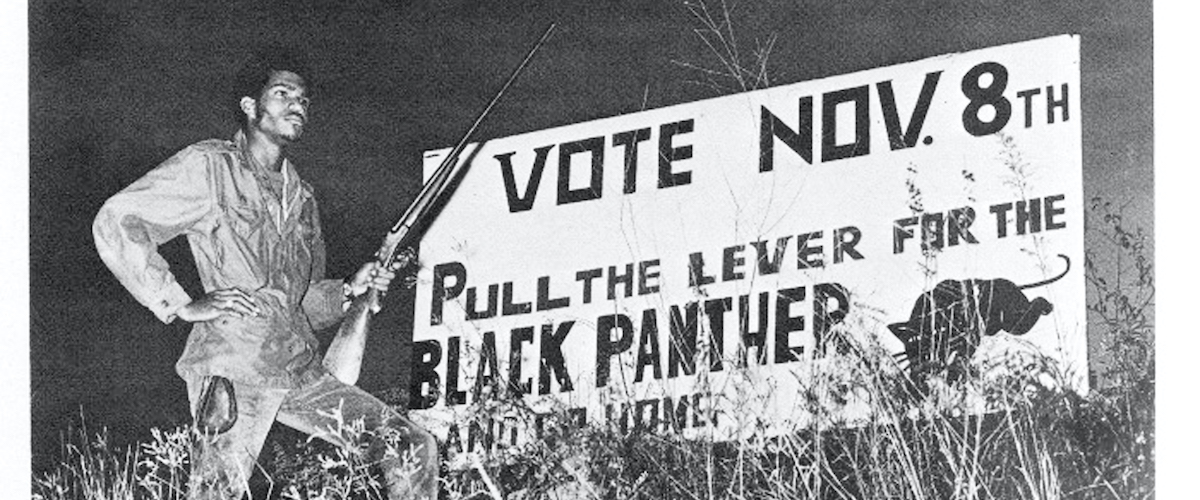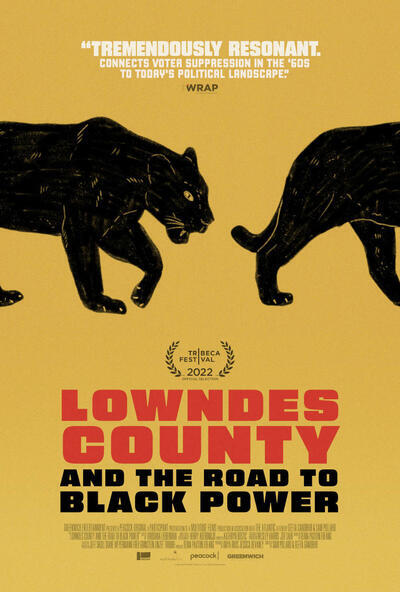
Now streaming on:
The Civil Rights movement is an era of history accustomed to filmic representation. The 1965 march from Selma to Montgomery is one of the most commonly noted moments in the movement, and the majority of the mileage of that march took place in Lowndes County, Alabama. Geeta Gandbhir ("I Am Evidence") and Sam Pollard's ("MLK/FBI") "Lowndes County and the Road to Black Power" utilizes impactful interviews and captivating archival footage to demonstrate the county's culture and history as a representation of its importance in the Black Power movement.
The documentary begins with the county's older residents describing what it was like living there. Immediately, a discrepancy is apparent. While white residents describe it as "an idyllic place," Black residents recall the county's nickname: Blood Lowndes. With an 80% Black population subjected to violence, poverty, and no voting rights, it became a breeding ground for relentless activism and the emergence of a new symbol: the Black Panther.
"Lowndes County and the Road to Black Power" investigates the development of alternate parties and organizations—largely the Student Nonviolent Coordinating Committee, the Lowndes County Freedom Organization, and the Black Panther Party—and effectively declares differentiation from the Southern Christian Leadership Conference with the paradigm that "strong people don't need strong leaders." The film is also affecting in depicting the organization and teamwork that bolstered the movement and confidence of the oppressed residents of Lowndes County. It was not only the activists but the citizens that made it happen.
Pollard and Gandbhir's film takes just as much time expounding on the political, tragic, and social moments as it holds a microphone to the everyday allyship and friendship that held the collective together. Whether creating comic books together to express complex political ideas or drag racing together in cars, the human aspect of these individuals is not made secondary to their activism. Instead, beautiful portraiture and archival footage of the everyday lives in Lowndes County remind the viewer that these citizens are people first: they are not symbols, they are not ideas, and they are not inseparable from their cause.
"Lowndes County and the Road to Black Power" distinguishes the difference between passed legislation and accessible legislation and how the goal of integration does not fulfill the need for power. In threading a vast amalgam of sources, the documentary also pointedly captures the nuances of the Civil Rights Movement, outlines the political and power structures at its core, and does not neglect to give credence to the many historical details. Moreover, it's expertly organized and seamlessly edited, making its many transitions between time and ideology undetectable. And while it's impossible to be all-encompassing of one of the most significant social movements in history, "Lowndes County and the Road to Black Power" is magnificently detailed but not dense throughout its 90-minute runtime.
Interviews with SNCC activists, like Courtland Cox and Ruby Sales, combined with a wealth of archival footage of Stokely Carmichael (who would rename himself Kwame Ture), keep the voices of the movement alive and inherently translate the organization's passion. Meanwhile, the interviews with historians help contextualize and explain the nuances to a viewer who may not be familiar with the information. As a result, "Lowndes County and the Road to Black Power" is accessible, passionate, and motivated by the principle of community that led to the Black Power movement. It is not concerned with name-dropping and defining leaders; instead, it is vehemently empowered by a dogmatic appreciation for collective grassroots activism.
Now playing in theaters and available on VOD.
Peyton Robinson is a freelance film writer based in Chicago, IL.







90 minutes